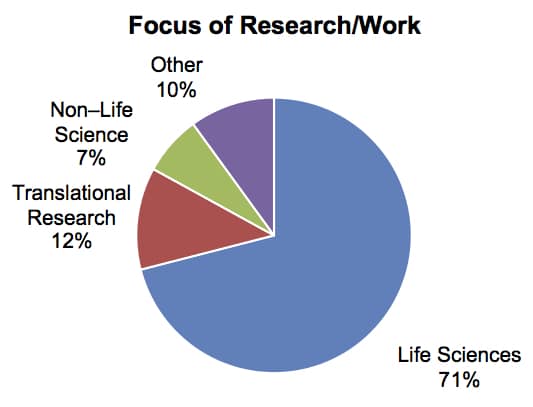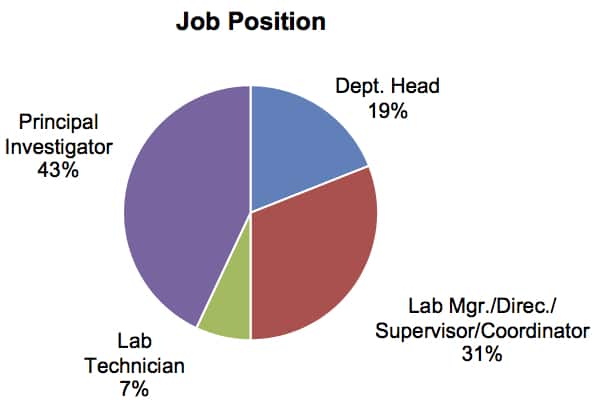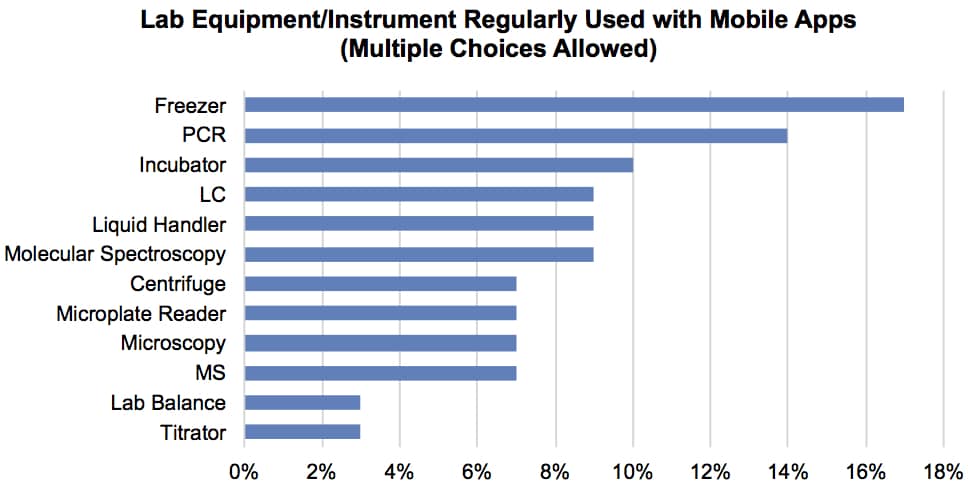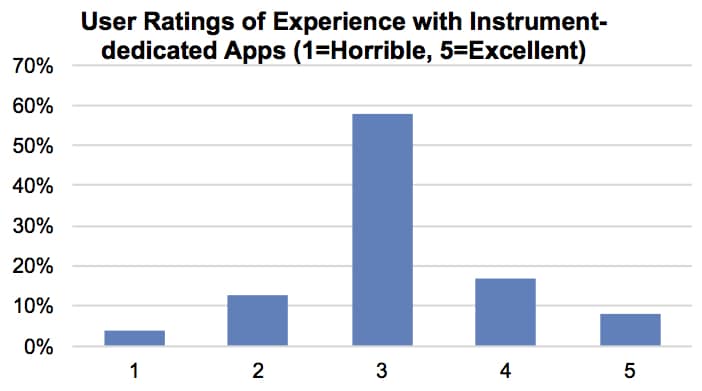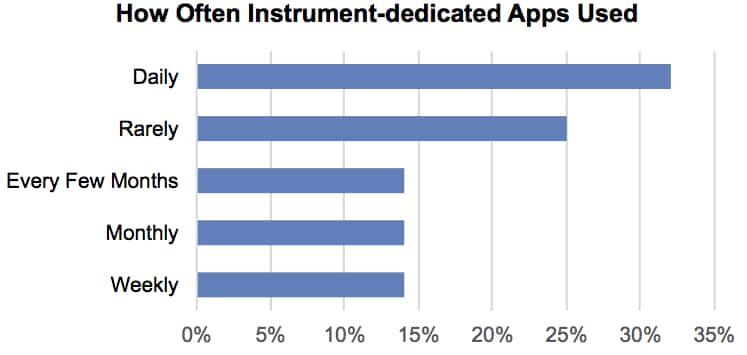Mobile Apps for Instruments: Room for Growth
With the ubiquity of smart phones, mobile applications have become a way of life. Instant access to data and portability are among the features that make apps a good fit for lab use. Multiple types of apps are designed for use by scientists in labs, such as those providing reference materials, protocols and data analysis.
Another type of app available to labs are those designed to work with lab instruments/equipment; for example, to monitor and control instrument operation, or to access and review instrument data. Such apps support a specific lab instrument/equipment system and are primarily available from instrument vendors for designated systems. But have labs been adopting such apps?
A survey of 67 labs conducted by BioInformatics LLC’s Science Advisory Board, an online panel of life science researchers and medical professionals, suggests that many scientists are adopting instrument-dedicated apps but that the majority still have not. The survey was conducted online in mid-June and surveyed scientists in the US and Europe (see demographics below).
In total, 40% of survey respondents have downloaded a mobile application designed for use with a specific instrument in their labs. Adoption rates are similar in two types of users, according to survey results. For the two largest categories of respondents, 53% of scientists working in academia, and 56% of scientists at biopharmaceutical and biotech companies have downloaded such apps.
Respondents’ advanced degrees also does not appear to influence app usage. Thirty-six percent of PhDs that participated in the survey have downloaded instrument-dedicated apps, compared to 41% of respondents with other degrees. Not surprisingly, the department heads surveyed were less likely to download these apps than lab managers and principal investigators. Forty-five percent of principal investigators had downloaded an app, and 43% of lab managers had.
Those in the survey who do use lab instrument–dedicated apps are more likely to use more than one app, according to survey results. Seventy percent of the respondents that have downloaded apps use them with multiple types of instruments that respondents were asked about.
The respondents were presented with a list of 12 categories of lab instruments/equipment and could mark more than one category. The most popular instrument for app use was freezers, with 10 respondents. Although the most cited instrument in the survey, the number is low compared to how many freezers are installed in life science labs, the type of lab that made up the majority of the survey. But this is not surprising considering how many older freezers, which do not have such capabilities, are likely installed in respondents’ labs.
The next most popular type of system for use with a dedicated app was PCR, used by seven respondents. Again, this is a relatively low percentage compared to the number of respondents, 44 and 43, that have used end-point and/or real-time PCR, respectively, in the last 12 months in their research. As above, a lower installed base of newer instruments could suggest a higher likelihood of app adoption.
Users of instrument/equipment-dedicated apps in the survey appear to be satisfied by the apps, with 61% of survey respondents giving them a 3 on a scale of 1 (horrible) to 5 (excellent).
But how often are respondents using the apps? Over a third of respondents who have downloaded laboratory instrument-dedicated apps use them on a weekly basis. Twenty-two percent use it on a daily basis. However, 45% use them “rarely,” suggesting that download rates do not directly correspond with usage rates.
As the new generation of app-enabled laboratory systems slowly replace the installed base, it is likely that instrument-dedicated app usage will increase. As the survey responses indicate, an app user for one instrument is likely to be an app instrument for other instruments, promising a committed customer base.

